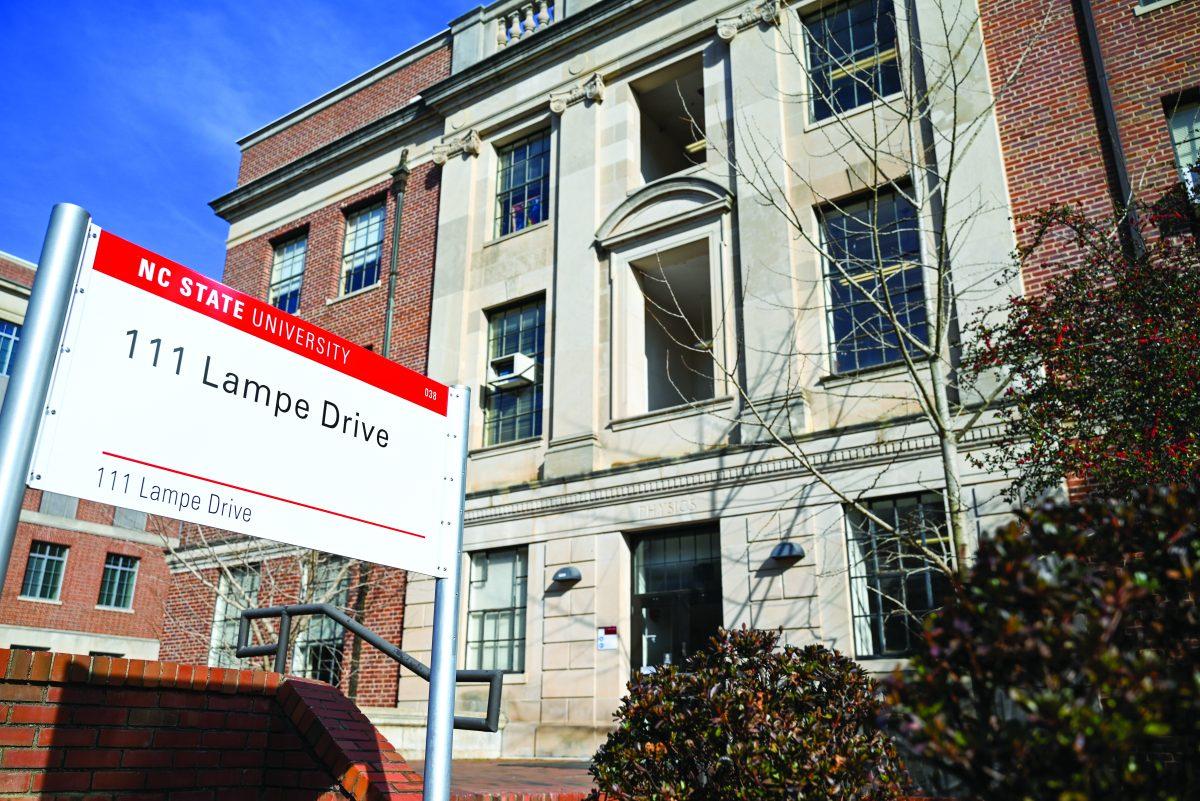The Joint Department of Biomedical Engineering, a partnership between UNC-Chapel Hill and NC State, is expanding thanks to a $20 million donation.
The endowment, from alum Ross Lampe Jr., will primarily facilitate research and commercialization at the department. It will also be renamed to the Lampe Joint Department of Biomedical Engineering at NC State University and UNC-Chapel Hill.
According to NCCareers.org, biomedical engineering is a surging career in North Carolina. Paul Dayton, department head and chair of the Joint Department of Biomedical Engineering, said this donation showcases the importance of biomedical engineering in North Carolina.
“We’re the third largest program in the country by graduating B.S. Biomedical Engineering degrees,” Dayton said. “That shows the importance of this program and developing the workforce, the biomedical workforce.”
Matthew Fisher, associate professor and director of graduate studies in the department, further highlighted the importance of biomedical engineering in the state.
“I think if you look at the Research Triangle and the number of biomedical companies in the area, it helps statewide to show that biomedical engineering really is a strong presence in North Carolina,” Fisher said.
Dayton also emphasized the funding will primarily be used for research and commercialization, the process of bringing products to market. This can include help with patents to finding commercial applications for research in the department.
“The funds will be used to support faculty and students in commercializing R&D funding and intellectual property,” Dayton said. “BME is very entrepreneurial.”
Fisher echoed these claims.
“More than half of our BME faculty have spun out companies, and a significant portion of those companies employ some of our Ph.D students,” Fisher said.
The department specializes in five research areas — regenerative medicine, rehabilitation engineering, pharmacoengineering, biomedical imaging and biomedical microdevices.
Fisher said the donation will enable Ph.D. research for graduate students.
“The endowment will enable that in a number of ways,” Fisher said. “By allowing us to obtain state of the art equipment or support our research faculty to apply for grants, which would then be executed by students.”
Dayton said there is also some flexibility in the funding for the department to communicate research and initiatives to the public. Funding can be used to adapt to new and changing developments in science and technology.
Dayton said the funding will allow the department to grow research and commercialization output through the next decade, as well as increase enrollment and hire more faculty and staff. The funding does not support increasing faculty and staff positions, but the University’s engineering expansion will fund additional hiring.
“Biomedical engineering will be one of the departments that’s growing as part of that, and this endowment will help support the faculty and students as that happens,” Dayton said.
Fisher said the donation will allow the department to prepare students for a growing field.
“We’ve already seen, I would say, over the past few years more and more of our students going into industry in biomedical engineering,” Fisher said. “This will really allow us to position our students to be attractive for those positions.”
Fisher also said the donation will open opportunities for graduate students in the department.
“If you look at the size of our program, it’s been increasing steadily every year,” Fisher said. “… I think this donation really allows us to fuel that.”
The Lampe family has been a long-time financial supporter of NC State, with Lampe Drive also being named after his grandfather, J. Harold Lampe who was the dean of the College of Engineering. Ross Lampe Jr. is an engineer by trade, and is currently a graduate student at the College of Veterinary Medicine.
“Dr. Lampe and his family have a long history of supporting NC State,” Dayton said. “We’re really thankful for Dr. Lampe’s support and interest in BME.”













